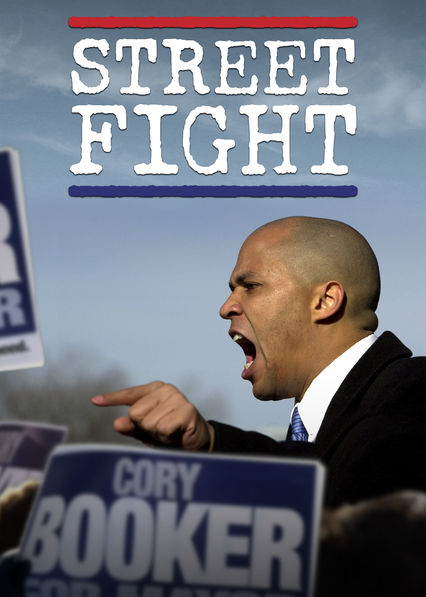You wouldn’t expect a potential mayoral candidate to spend their night walking down the streets, going from house to house to meet with potential voters. You also wouldn’t expect that after the election, that same man would be on the streets with the people shoveling snow and helping those affected by fire. Fame and power can buy many things, but character and resilience can help unite people.
The Winthrop College Democrats hosted a watch party of the 2005 Academy Award –nominated documentary “Street Fight,” which documents Cory Booker’s 2002 mayoral campaign in Newark, New Jersey and the struggles of fighting a political battle on the streets against Mayor Sharpe James. The documentary sought to show the background of the political machine Booker fought against and the resolve he had when facing adversity. Katarina Moyon, director of the John C. West Forum on Politics and Policy and co-director of HMXP studies, commented on how Booker’s presidential campaign helped organize the watch party for the documentary.
“The campaign organizers for Senator Booker’s campaign approached Winthrop and asked if we would show the documentary to students on campus,” Moyon said.
Rance Graham-Bailey, the South Carolina regional organizing director for Booker’s campaign, was the host of the watch party. He noted how the strategy of grassroots politics in local government can help gain political experience and working one brick at a time in your campaign.
“It’s that retail politics is like regular politics,” Graham-Bailey said. “That’s the core message that we have in the campaign you do it with the idea of building it stronger.”
Senior political science and history double major and Chief of Staff for the College Democrats Josh Alicea noted how the College Democrats worked together to bring Democratic candidates such as Kamala Harris and Bernie Sanders come to the university. He cited Winthrop as a campaign rally point, just like it was during the 2016 election, exemplified by that year’s Democratic Forum.
“If you look at the last election in 2016, I believe that most candidates come to Winthrop to speak more than once,” Alicea said. “We want all the major candidates to come to Winthrop at least once.”
The documentary highlights movements of Booker’s campaign for mayor, showing him living the Brick Towers which is one of the lowest income areas in Newark, and how he faced challenges of smear campaigns and his supporters being intimidated by the incumbent mayor just for supporting him.
“Cory Booker comes off as a personable person. He comes off as a genuine person and that the connection he has is better than any other mayor,” Alicea said.
One of the surprising moments of the documentary was a moment where James tries to frame the narrative of Booker as a “white Republican,” showing how people think he wouldn’t represent him due to his education and perception of what it means to be black. “The use of racial politics to divide are an uncomfortable focus on the black community, showing how it can potentially hurt people,” Graham-Bailey said.
The documentary’s biggest takeaway is that, despite the hardships Booker faced in his campaign and the eventual loss, he continued to stick with his goals and strived to work hard on his principles for his next campaign in 2006.
“It motives people on what it’s like to be resilient and fight on what you want to fight for,” Graham-Bailey said.
A wide array of people in Booker’s campaign were punished and criticized for supporting him, including ministers, police officers and apartment tenants. One scene in the documentary shows one of the aides to James damaging the camera of the filmmaker and having men take down Booker’s campaign signs during election day. Despite this, it shows the hard work that people who supported Booker and his ideas making sure no one is left behind in the United States.
“I think it represents that the Democratic Party is a big tent party; the people are being represented among the different candidates,” Alicea said. “[However] there are too many. Having so many people takes away from the debates because they gloss over the issues.”
Apart from the College Democrats and Republicans working to bring candidates to Winthrop, Alicea brought up how Phi Sigma Alpha, the political science honor society, is working to bring former South Carolina governor Mark Sanford to campus in an effort to bring another side of the issues that are on the minds of voters as the 2020 presidential election approaches.
“With democracy, you can’t have just one side [on campaign issues]. It’s important to have all sides to an issue,” Alicea said. “Winthrop should be a place for candidates to come and spread ideas.”
Photo: Courtesy of Marshall Curry Productions




